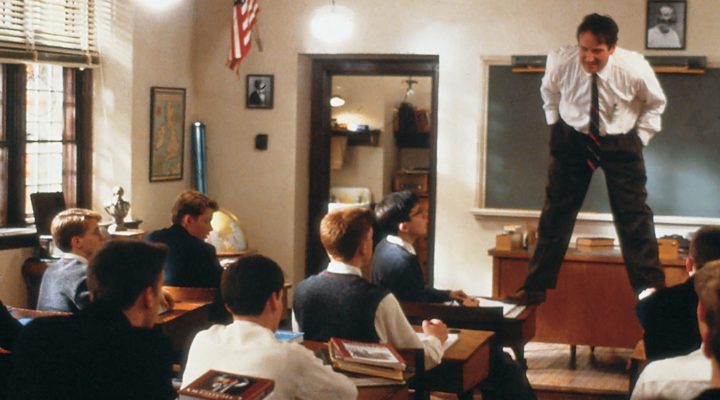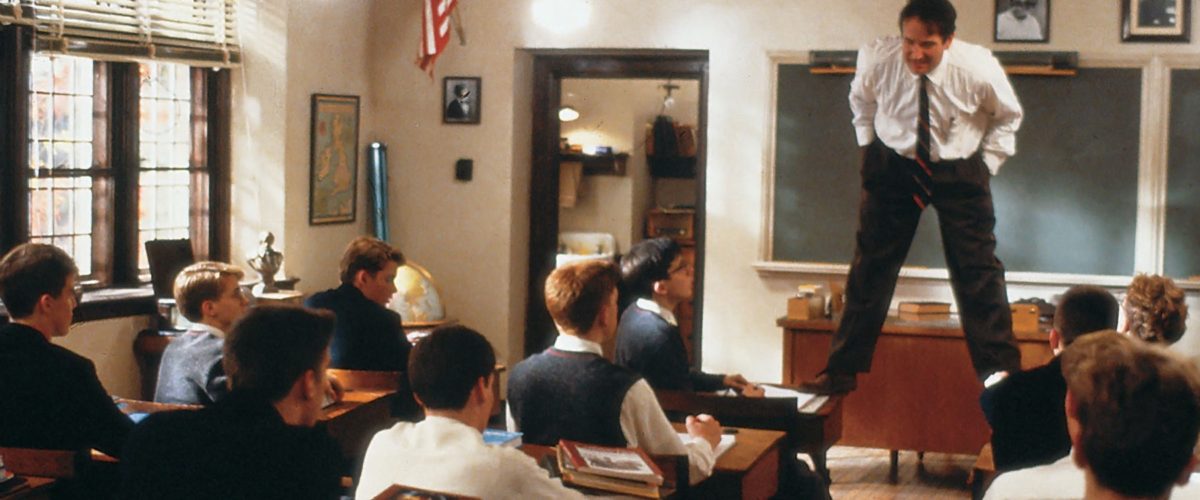This week, Robin Williams was trending on Twitter. He died by suicide in August 2014, five months after my late husband died the same way.
Side note: When someone takes their own life, the correct verbiage is to say they “died by suicide.” When we say “committed suicide,” it connotes that a crime was committed. There is no crime in suicide. Only tragedy.

Kim Brewer
When Robin died, I was still in the throes of grief for my late husband. But news of Robin’s suicide made me nearly catatonic. I can remember sitting lifeless in my recliner for most of the day. The struggles that led to Robin’s suicide made me think of my husband’s struggles that led him down the same road. I couldn’t stop thinking about his widow and what she would be facing in the months to come.
At the time, I didn’t understand how a celebrity’s death could affect me so much. I loved Robin’s work but didn’t know him personally. But now I understand. In the last seven years, any time I hear about a suicide, I’m transported back to when I found out about my husband’s suicide.
I remember being in the police station when my pastor told me Paul didn’t make it. I remember every single thing about that moment. Hearing someone scream “NO!” and realizing that person was me. I remember being driven to the hospital where Paul’s body laid in the ER. And that same out of control screaming that came out of my mouth when I saw him laying lifeless on the bed. I didn’t even get a chance to say goodbye to him before he died. I kept looking at his lifeless body expecting to see his chest rise.
Sitting at the bedside of your dead husband isn’t ever something people talk about. Especially if suicide is involved. I can remember being so ashamed when I got his death certificate that showed he died by suicide. I hid that fact for weeks after he died. I felt like a failure as a wife, that I wasn’t good enough. Why didn’t I see the signs (looking back on it, they were there)? Why couldn’t I have been a better wife?
“Sitting at the bedside of your dead husband isn’t ever something people talk about.”
Through loads of therapy, I’ve come around since then.
I might have been able to prevent his suicide that day, but if he was really serious, he would have found a way another time. I occasionally do still have regrets and wonder about the what ifs. But I know those are futile.
I do still harbor anger directed at him. The last seven years have been sprinkled with bouts of hell on earth. The lingering trauma from the abuse I suffered the year leading up to his death sometimes makes me act irrationally. My current husband sometimes bears the brunt of that.
Thankfully, he is one of the most patient and compassionate people I know. He understands my trauma and always loves me through it. I regularly see a therapist when I need to and take antidepressants.
Some of my congregation think these things aren’t necessary. And at one point in my life, I would have agreed with them. This largely stems from how I was raised. I recently wrote an article about what I found in my mom’s Bible and her struggles with depression. Her belief that depression was from the devil was one that I held for many years. I believed if I could just be a good enough Christian, prayer and the Holy Spirit would be enough.
“We need to stop pitting mental health against someone’s relationship with God.”
But after my late husband died, I didn’t have much of a choice. I was so overwhelmed with grief and trauma that I knew I needed help. I pursued professional help from a psychologist in conjunction with pursuing my relationship with God.
Church, we need to stop pitting mental health against someone’s relationship with God. Instead of presenting it as an either/or proposition, we must start leading people to see that it’s both/and.
I regularly share my mental health struggles in discussions with church members, from the pulpit and with just about anyone else who will listen. I feel it’s part of my call to normalize mental health, among other things such as talking about suicide, in the church. I refuse to sit by while people sitting in churches suffer the shame I did.
I truly believe that having difficult conversations like these not only will heal the church but also will help to heal the communities around us.
Kim Brewer serves as associate pastor of Pantano Baptist Church in Tucson, Ariz.
Related articles:
What I found hidden in my mother’s Bible after her death | Opinion by Kim Brewer
A tattoo that says, ‘Your story is not over’ | Opinion by Mark Wingfield
Listening to depression as a spiritual and political practice | Opinion by Eric Minton


